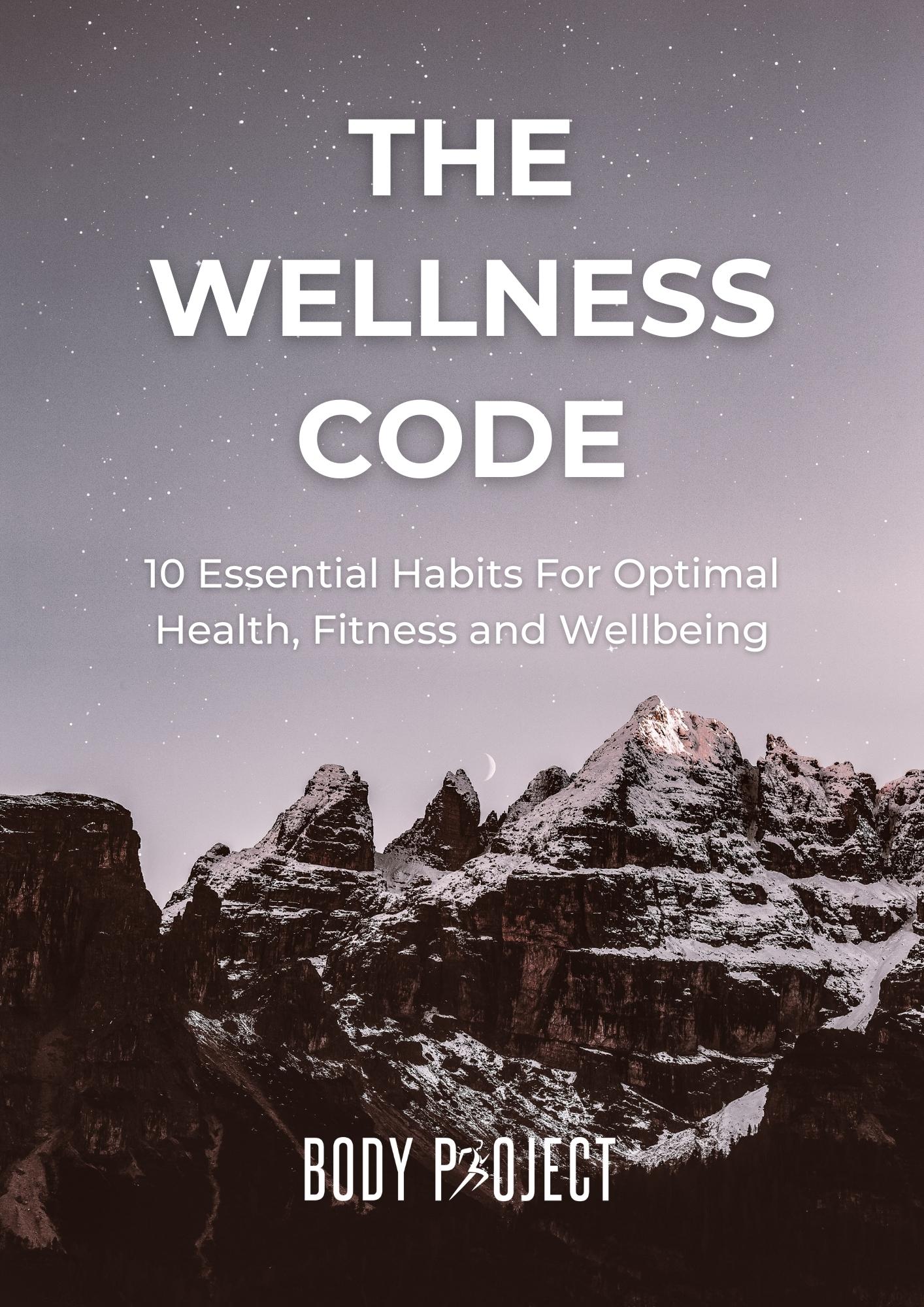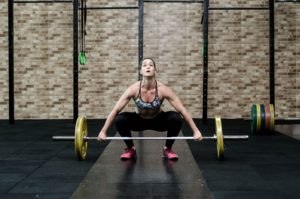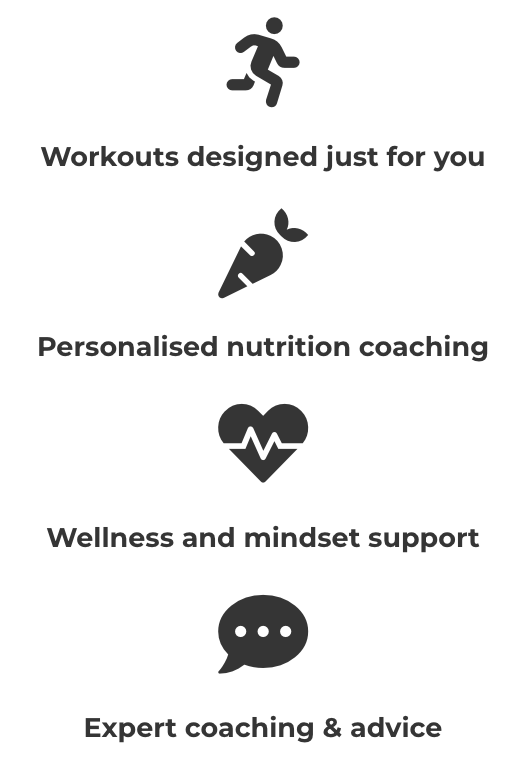I wrote this article to help you understand what Personal Trainers and Nutritionists mean when they talk about protein: what it is, what it does, and importantly how much protein you need. I've also included a list of high protein foods to help you include more protein in your diet.
What Is Protein?
Protein is a nutrient found in most foods - at least in small quantities. Contrary to what you might believe, it isn’t just used to build muscle tissue, but is required for the synthesis and maintenance of almost every type of cell in our bodies. Protein is essential for our survival.
There are countless different types of protein, each with their own function, and all proteins are made up of long, folded up strings of molecules called amino acids. These amino acids unite in varying combinations, shapes and levels of complexity to make different types of protein.

Free amino acids

Polypeptides are formed from amino acids
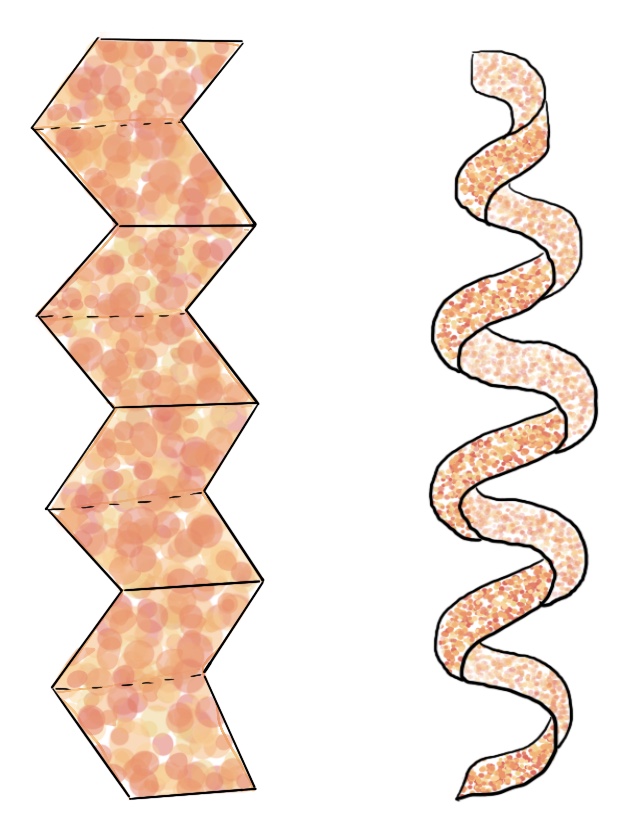
Pleated sheets and helices are made from polypeptides
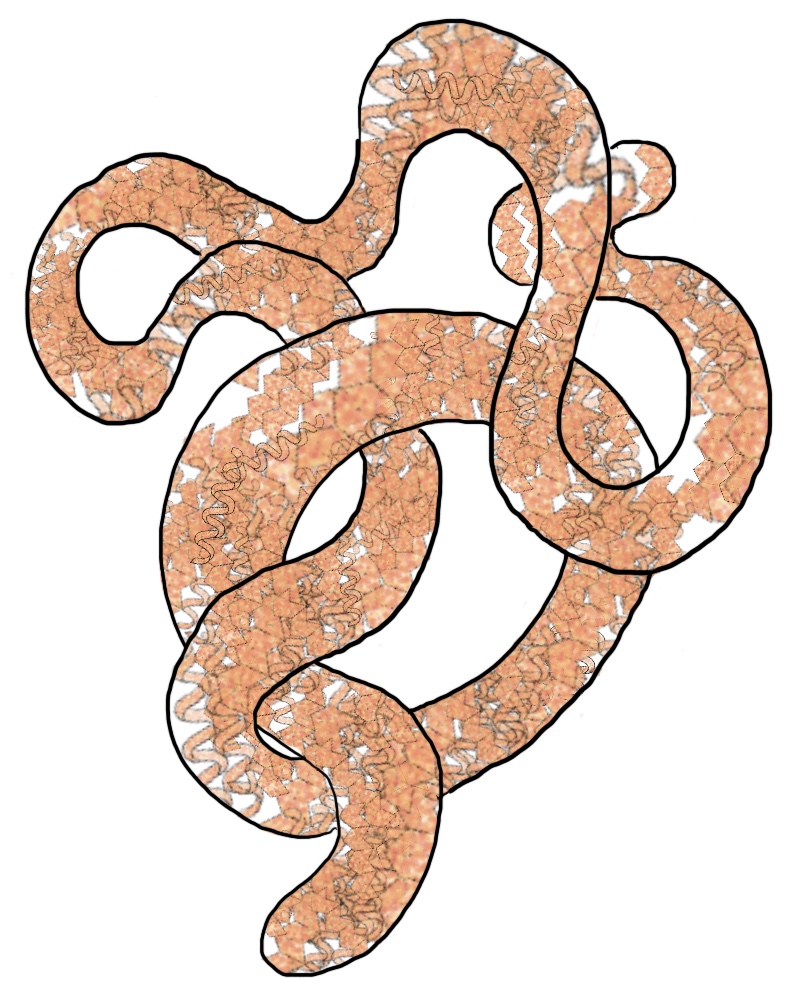
More complex structures are made from pleated sheets and helices
Our bodies can create some types of amino acids, but there are 9 essential amino acids we can only get from our diets. These are:
- Isoleucine (BCAA*)
- Leucine (BCAA)
- Valine (BCAA)
- Histidine
- Lysine
- Methionine
- Phenylalanine
- Threonine
- Tryptophan
*BCAAs, or branched chain amino acids, are essential amino acids with protein anabolic properties, supporting the creation of proteins in the body from strings of amino acids.
What Happens When We Eat Protein?
When we consume protein, it gets broken down by our digestive system. The process begins in our mouth, where saliva and the act of chewing - or mastication - begin to process the food. Enzymes and acids in the stomach and small intestine break complex proteins down into strings of amino acids (di- and tri-peptides), which are absorbed in the small intestine. The liver further breaks down amino acid chains into free amino acid molecules.
This is important to know, because it demonstrates that it's best to consume a variety of different proteins in order to include a full range of amino acids in your diet.
Interestingly, di- and tri-peptides are more quickly absorbed than free amino acids, and so people who consume large amounts of BCAA supplements could actually be slowing the absorption of protein in their gut.
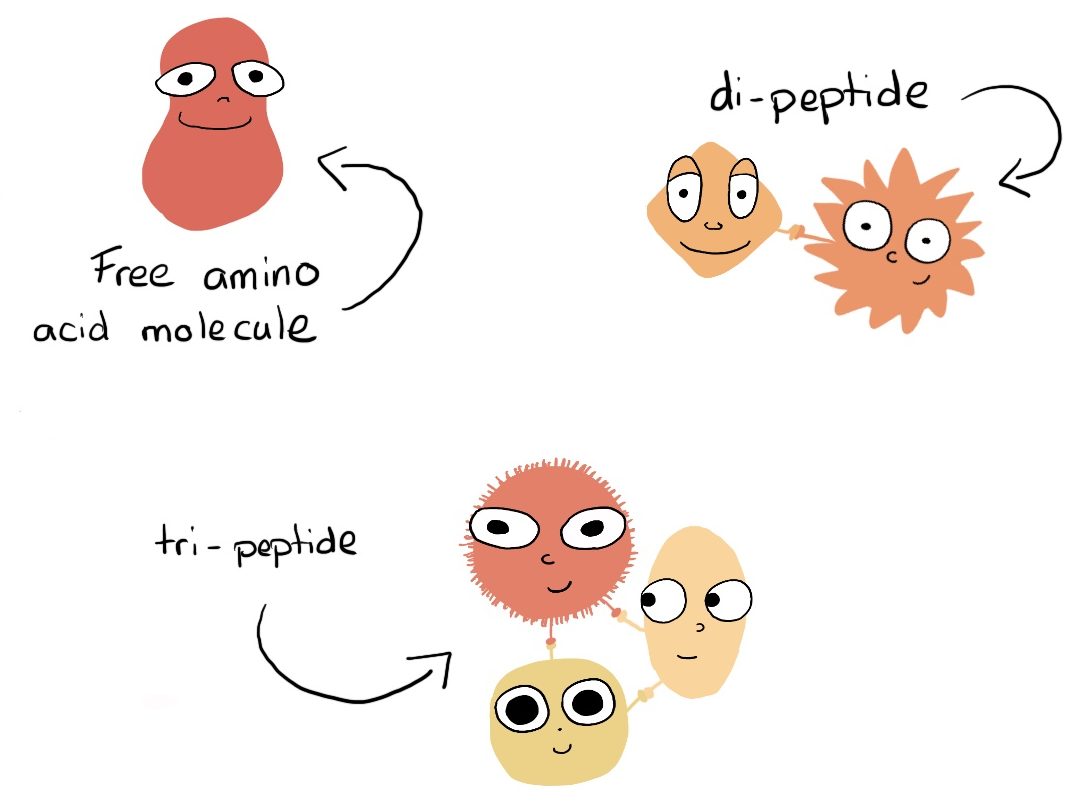
What Does Protein Do In The Body?
Once absorbed into the bloodstream, these amino acid compounds are transported for use around the body. Our cells piece together amino acids to create specific proteins in order to synthesise:
-
- Muscle tissue
- Skeletal and connective tissues (bones, tendons, ligaments, cartilage)
- Skin, hair and nail tissue
- Neurotransmitters
- Enzymes
- Immune system chemicals
It’s important that we maintain an adequate level of amino acids in our bloodstream to enable our bodies to build and repair all of these important cell types whenever the need arises.
How Much Protein Should You Eat?
My general recommendation for a bare minimum daily protein intake would be 0.8g of protein per kg of bodyweight for a sedentary adult. This amount of protein would be just enough to avoid malnutrition, although it certainly wouldn’t provide an optimal amount.
In terms of an upper limit of protein consumption, it’s very unlikely that an adult would ever need to consume more than 2.2g of protein per kg of bodyweight per day.
Whilst elite athletes may be able to consume 3.5g of protein per kg of bodyweight every day without any negative side effects, it is possible to eat too much protein. The short term effects of overconsumption of protein are likely to be no more serious that some digestive discomfort and very smelly farts(!), but long term effects could include cardiovascular disease, damage to the liver and kidneys, and seizures. That said, you’d have to eat a lot of protein for a very long time to notice any ill effects, and in my experience most average people find it very difficult to meet their personal protein targets, let alone overeat it.
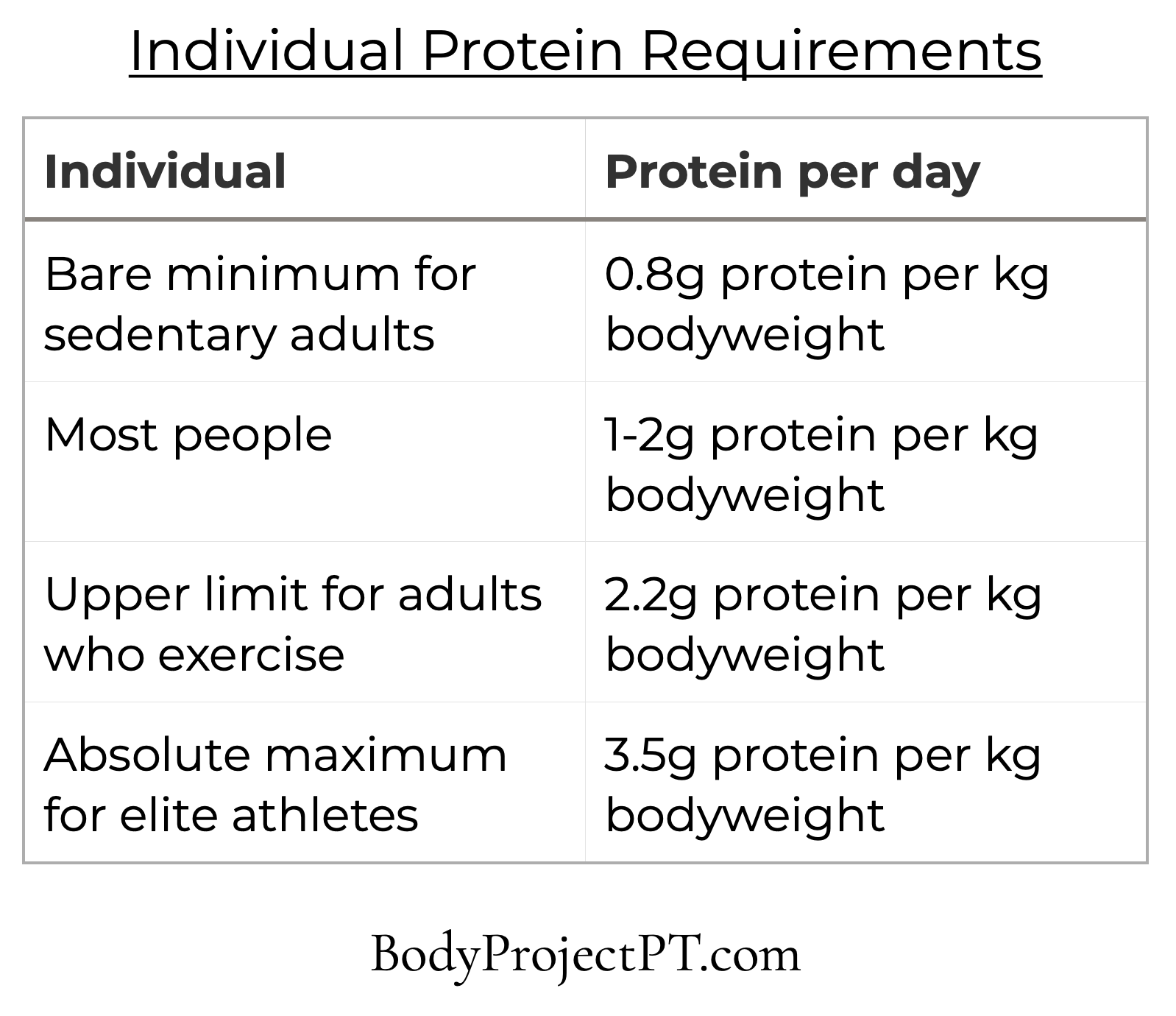
Our individual protein requirements are contextual, depending on factors such as our age, health status, amount & types of daily activity, training/nutrition goals, and stress. For this reason, it would be impossible for me to give any more specific advice for your personal requirements. I’d strongly recommend working with a professional who can accurately calculate your nutritional needs and support you to make positive changes to your diet over time.
How To Include More Protein In Your Diet
To help you take action on what you’ve learned today, here’s a rough overview of how I might approach improving your diet as a coach:
1. Understand your current situation
Without clarity on what you’re eating and how you feel about nutrition it would be impossible to sketch up a timeline for your progress. During an in-depth consultation with new clients, I always consider the nutritional, behavioural, and psychological factors below.
Nutrition
How many calories you’re consuming, and by how much that fluctuates from day to day
Your food sources and their quality
The macronutrients you’re consuming: carbs, fats and proteins
The micronutrients you’re getting from food: vitamins and minerals
The liquids you’re consuming, eg water, coffee, alcohol
Behaviours
If/how you plan and prepare your meals in advance
How you consume your meals, eg. on the go, chewing food
Diets you’ve followed
Habits and rituals, including morning coffees, irregular or emotional eating
Disordered eating
Psychology
Your understanding of your personal nutritional requirements
Your ability to recognise physiological hunger and fullness cues
Any negative associations or limiting beliefs, eg food as a reward for exercising
Readiness to make small changes to your nutrition over time
2. Negotiate a plan of action
With the perspective gained in step 1, I’ll be able to suggest some initial changes you could make to improve your nutrition, health, or performance, depending on your goals. These would typically be simple, manageable changes that would provide the biggest positive impact for the least amount of effort or upheaval. It’s important that we discuss and agree upon each step on your journey, so that you can fully agree and commit to the plan, and of course progress at a pace you’re comfortable with.
3. Take consistent action
Without too much pressure or high expectations, implement the steps you decided upon in step 2. You must absolutely expect to be successful in some attempts, and fail in others. The important thing is to maintain a level of awareness over what is/isn’t working, and regularly re-assess the situation… it’s for this reason that I offer two coaching calls every month to my online clients, as well as keeping almost daily instant messenger contact. Regular reviews are necessary to maintain perspective, momentum and agree upon subsequent steps over time. Click here to learn more about Online Coaching.
High Protein Sources Of Food
While most foods contain at least a tiny bit of protein, some sources contain more than others, and meat products are the only sources delivering a “complete” protein: they contain all 9 essential amino acids. Although plant sources don't contain all of the essential amino acids, you can combine a few different plant sources to get all of them in your diet.
Here are some examples of foods offering high values of protein per gram:
- Lean meat eg beef, pork, wild game
- Poultry eg chicken, turkey, duck
- Fish & seafood
- Eggs
- Dairy eg cottage cheese, greek yoghurt
- Protein powder eg whey, egg, vegan, casein
- Beans & legumes
- Tempeh or tofu
By eating a variety of protein-rich foods, we can ensure that we’re consuming all the essential amino acids necessary for our survival. I would always recommend aiming to receive your nutrients from real food before considering a protein shake, although these can be very useful for people in many cases. Speak to a professional about whether a protein shake would be right for you, and for support on choosing the right type for your needs.
The British Nutrition Foundation provides more info on animal and plant sources of protein.
Have A Question About Protein?
If you have a question on protein that isn't answered here, go ahead and type it in the box below. Asking questions helps me understand your needs, and therefore enables me to serve you better through coaching and the resources I create (like this one!).
Search Posts
Free Download
Popular Posts
Discover Online PT
Live Your Best Life
Want to work out, eat well, and live a long and healthy life... but don't know where to start?
In my lovingly prepared (and free!) e-book you'll discover the ten basic lifestyle elements you need in place to optimise your health, fitness and wellbeing.

Read More Helpful Articles
Subscribe For New Post Updates
Receive new posts, special offers, discounts, plus exclusive content that we only send out via email.
Don't miss out!

